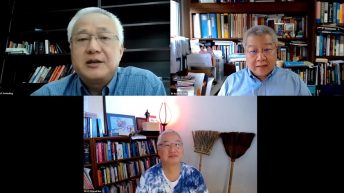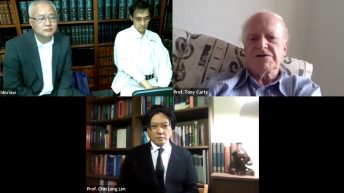Date: 29Oct 2021
In our second webinar in International Speaker Series, Professor Zhou will revisit the observation on “the Confucianization of law” developed by Tung-Tsu Chu (瞿同祖), and extend this theme to develop his argument on the Confucianization of bureaucracy in contemporary China. He will enrich this line of argument with an examination of the institutional foundation of the differential mode of association (差序格局) and their implications for bureaucratic and legal practice in China today.
Xueguang Zhou (周雪光) is the Kwoh-Ting Li Professor in Economic Development, a Professor of Sociology at Stanford University. His main area of research is institutional changes in contemporary Chinese society, focusing on Chinese organizations and management, social inequality, and state-society relationships. Before joining Stanford in 2006, Zhou taught at Cornell University, Duke University, and Hong Kong University of Science and Technology. He is a guest professor at Peking University, Tsinghua University, and The People’s University of China. He received his PhD in sociology from Stanford University in 1991.
Jin Li (李晋) is a Professor of Management and strategy, with joint appointment in economics. Prior to HKU, he has taught at Kellogg School of Management and London School of Economics, where he was a tenured associate professor of managerial economics and strategy. His main research area lies at the intersection of organizational economics, personnel economics, and labor economics. It focuses on the dynamics of informal relationships and explores how firms can design organizations to align Incentive and build trust. This research sheds light on how organizational design can be a source of competitive advantage.




